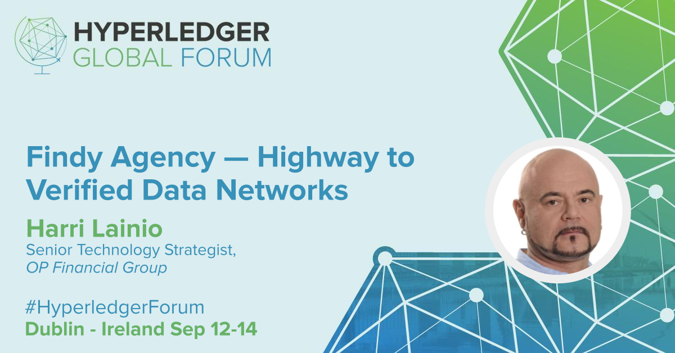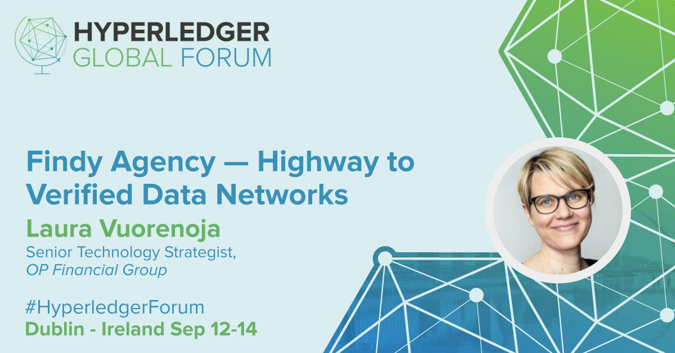This is the multi-page printable view of this section. Click here to print.
Slides
1 - Findy Agency — Building Highway to Verified Data Networks
background-image: url(https://images.unsplash.com/photo-1581010105267-67447703cfe9?ixid=MnwxMjA3fDB8MHxwaG90by1wYWdlfHx8fGVufDB8fHx8&ixlib=rb-1.2.1&auto=format&fit=crop&w=1471&q=80) background-size: cover class: center, middle, dark
.image-credit[Photo by Markus Spiske on Unsplash]
Findy Agency —
Building Highway to Verified Data Networks
.img-200[ ]
]
Helsinki Gophers meetup on 3.11.2021
.author-box.small[Laura Vuorenoja
Technology Strategist @ OP Lab]
.author-box.small.github[@lauravuo-techlab]
.author-box.small.twitter[@vuorenoja]
layout: true background-image: url(https://images.unsplash.com/photo-1495592822108-9e6261896da8?ixlib=rb-1.2.1&ixid=MnwxMjA3fDB8MHxwaG90by1wYWdlfHx8fGVufDB8fHx8&auto=format&fit=crop&w=2340&q=80) background-size: cover class: center padded-slide name: network
.image-credit[Photo by Pietro Jeng on Unsplash]
Findy Agency
–
Findy Agency is an identity agent service for individuals and organisations.
–
It provides functionality and APIs to identity holders for utilizing verified data networks.
–
Verified data exchange is based on asymmetric cryptography and Decentralized Public Key Infrastructure (DPKI).
???
- Findy development team at OP Lab has been researching self-sovereign identity and verified data networks for almost three years now.
- Findy Agency project has been born as a side product of the research work, multiple PoCs, and demos around this technology.
- The project codes were published fully as open-source in summer 2021.
Identity Wallet
–
Credentials, i.e., facts signed by different issuers, are stored in digital wallets.
–
Using their digital wallet, identity holders can cryptographically prove that the credential data is valid and that they, in fact, own the credential.
–
Proofs are zero-knowledge and support selective disclosure.
???
- Identity holder can be any entity that needs to prove facts about themselves. For example, an individual, an organization or an IoT device can be an identity holder.
- Zero-knowledge methods allow keeping the issuer signature and parts of the signed message secret. Thus it is possible to:
- Prove that the attribute exists in the credential, but do not reveal its value.
- Reveal the value of an attribute without revealing any other attributes.
- Findy Agency provides the digital wallet service together with needed communication capabilities to identity holders.
layout: false
Verified Data
.img-fill[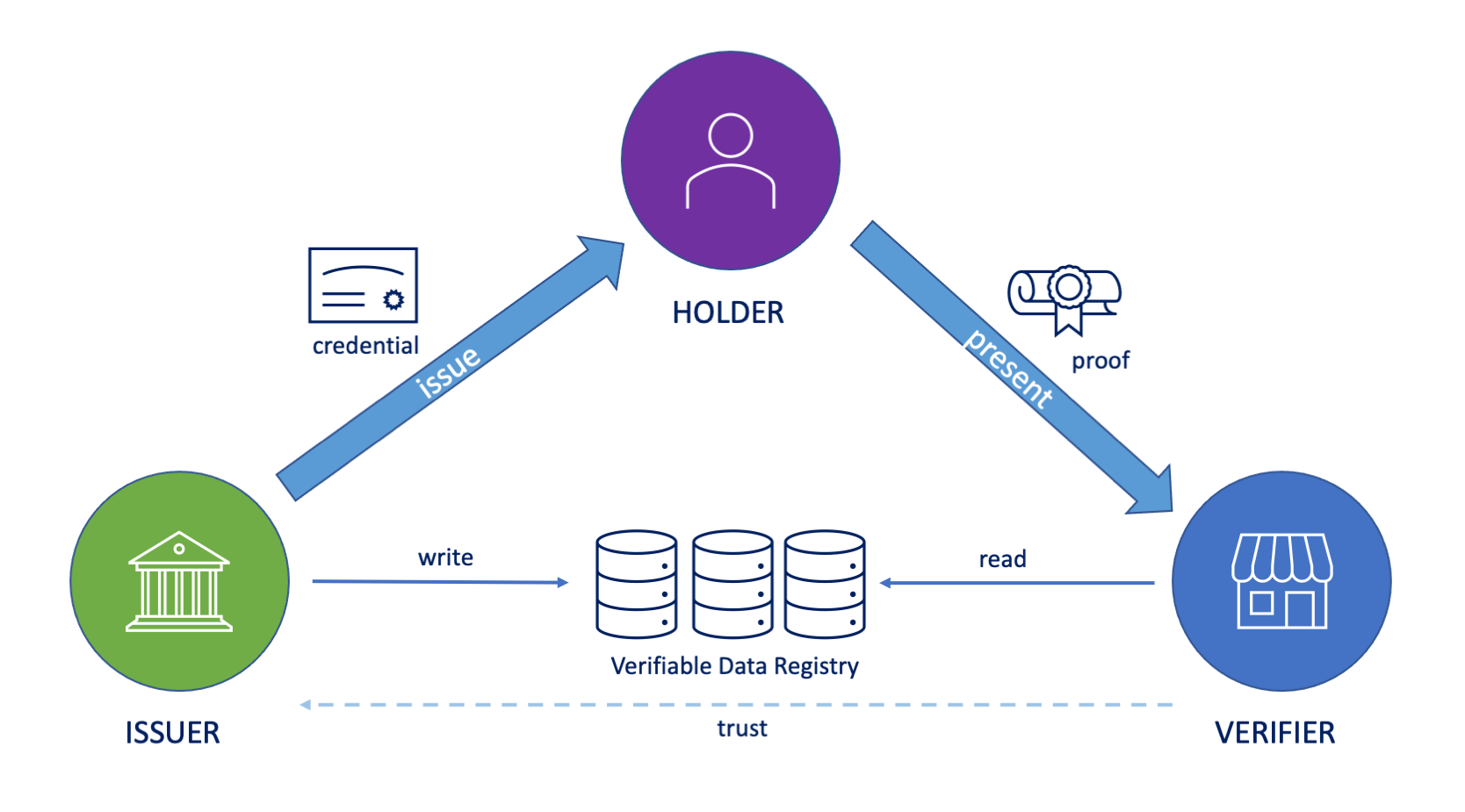 ]
]
???
- The idea of verified data networks is to utilize cryptography so that different identities can hold and prove facts about themselves digitally.
- The main concepts in verified data handling are
- Issuing credentials: signing facts and storing those in one’s digital wallet
- Prooving credentials: generating proofs from the signed facts and presenting those to counterparties
background-image: url(https://images.unsplash.com/photo-1512428559087-560fa5ceab42?ixid=MnwxMjA3fDB8MHxwaG90by1wYWdlfHx8fGVufDB8fHx8&ixlib=rb-1.2.1&auto=format&fit=crop&w=1470&q=80) background-size: cover class: center padded-slide
.image-credit[Photo by NordWood Themes on Unsplash]
Example: Dating Service with Verified Data
–
Bob creates a profile in an online dating service.
–
In the service signup phase, Bob needs to verify his gender and age with his digital wallet. He presents proof for his id card.
–
Verified gender and age are shown to other Service users when they are browsing Bob’s profile.
class: img-fill middle
Example: Dating Service with Verified Data
.img-fill[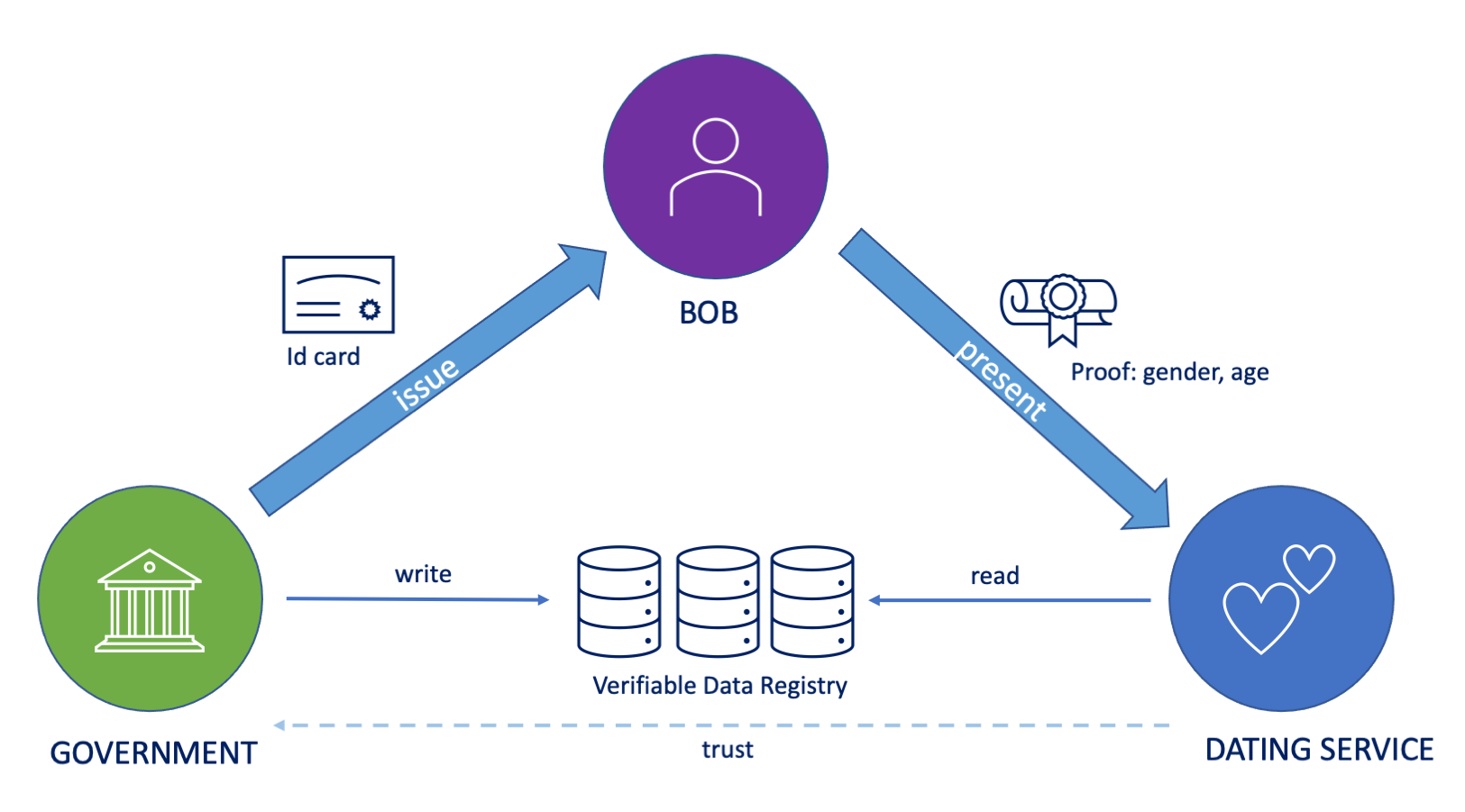 ]
]
background-image: url(https://images.unsplash.com/photo-1535191595495-d3222b2eda44?ixid=MnwxMjA3fDB8MHxwaG90by1wYWdlfHx8fGVufDB8fHx8&ixlib=rb-1.2.1&auto=format&fit=crop&w=1471&q=80) background-size: cover class: center padded-slide
.image-credit[Photo by Andy Art on Unsplash]
Example: Car Rental Service with Verified Data
–
Alice wants to rent a car with a self-service rental.
–
Car rental wants to verify that Alice has a driver’s license before she can make the order.
–
Alice uses her wallet to present the proof of her license to drive, issued by the police.
class: img-fill middle
Example: Car Rental Service with Verified Data
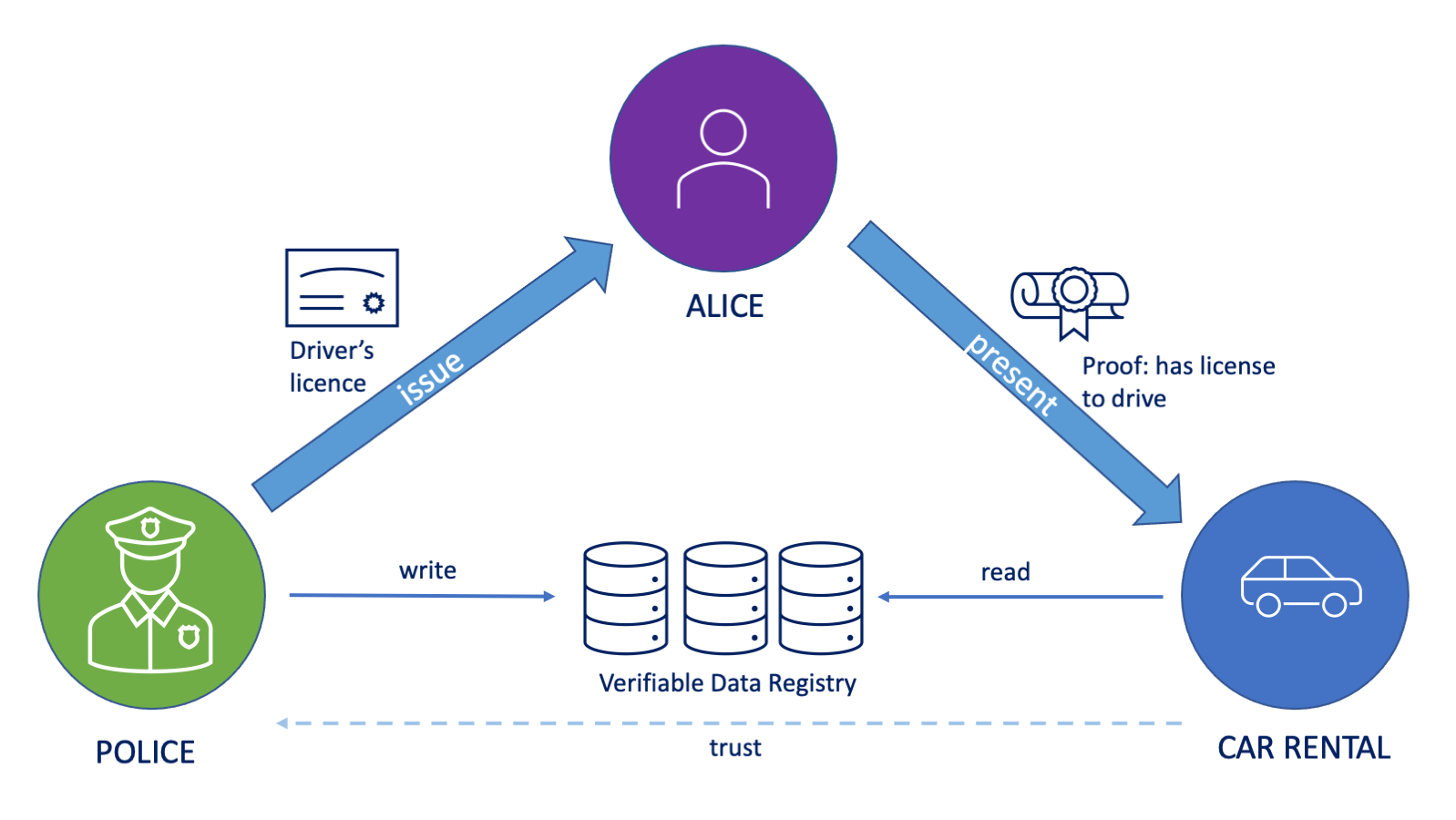
background-image: url(https://images.unsplash.com/photo-1505751172876-fa1923c5c528?ixlib=rb-1.2.1&ixid=MnwxMjA3fDB8MHxwaG90by1wYWdlfHx8fGVufDB8fHx8&auto=format&fit=crop&w=2070&q=80) background-size: cover class: center padded-slide
.image-credit[Photo by Hush Naidoo Jade Photography on Unsplash]
Example: Doctor Reservation Service with Verified Data
–
Bob is booking an appointment with doctor Dan. He has not visited Dan before.
–
Bob wants to confirm that Dan is not a fake doctor.
–
Before completing the reservation, Bob sends a proof request to Dan for Dan’s diploma. He can verify that Dan graduated from a respected university.
class: img-fill middle
Example: Doctor Reservation Service with Verified Data
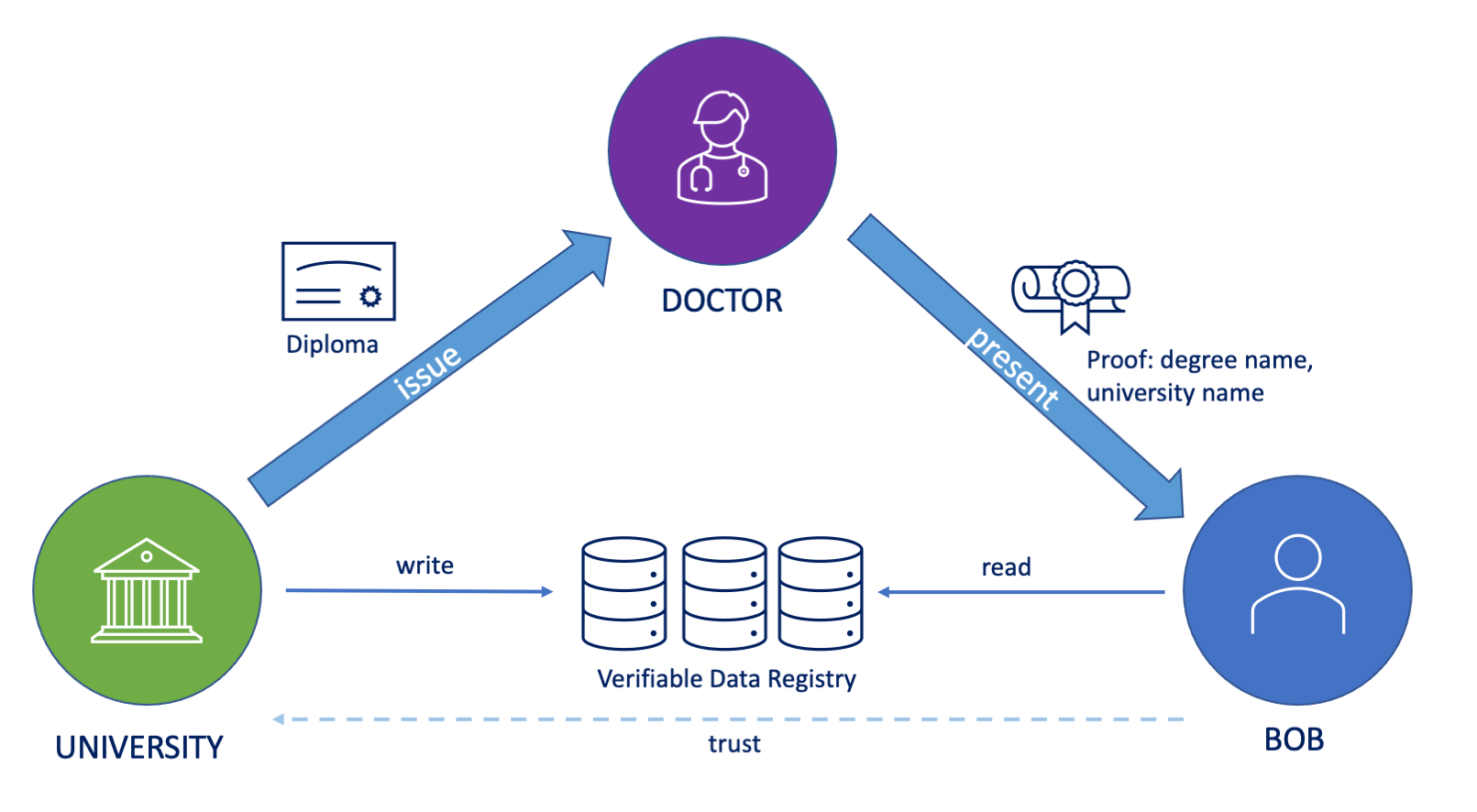
class: img-fill
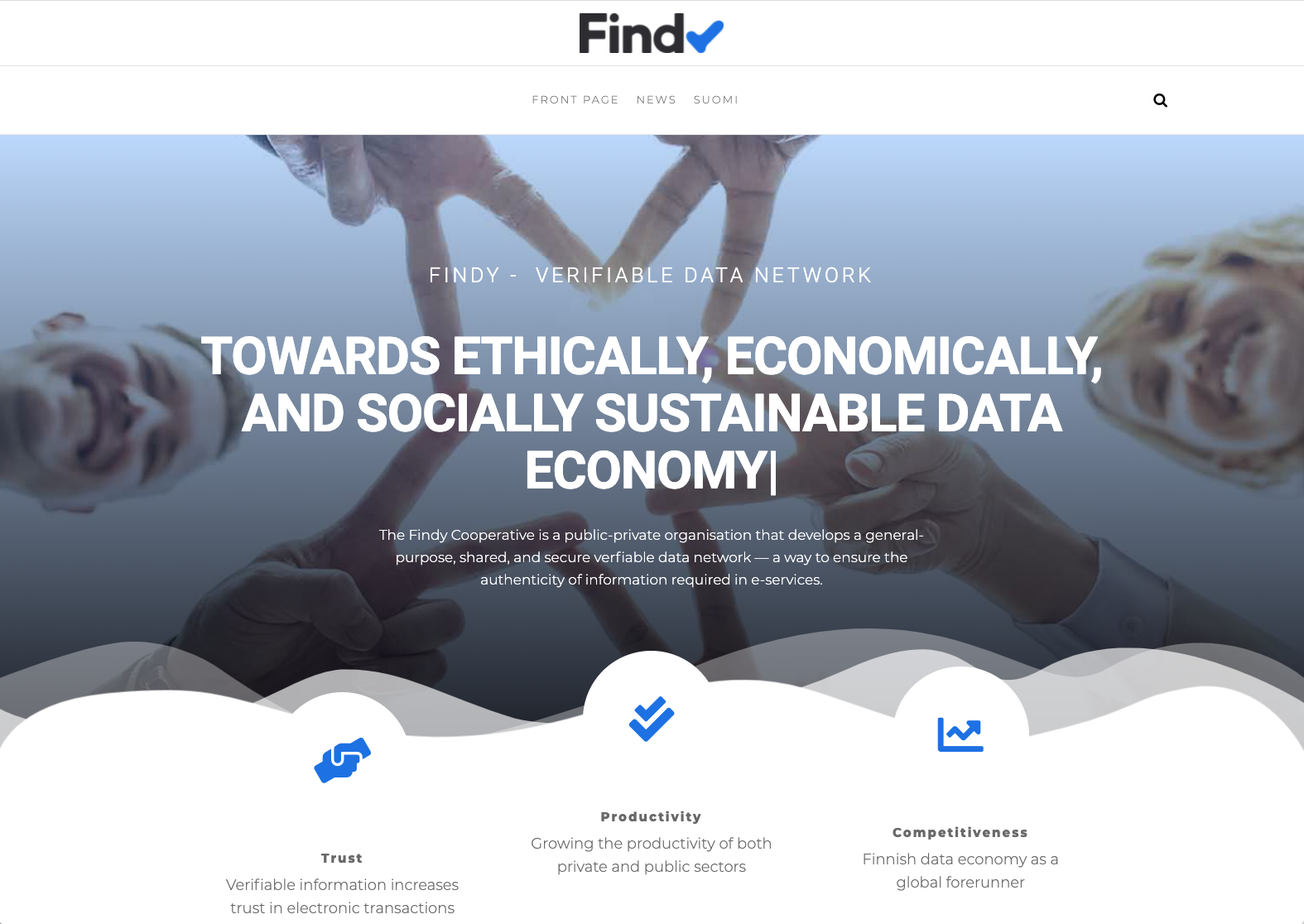 .center.small[Findy Network]
.center.small[Findy Network]
???
- A public permissioned blockchain stores the shared data, such as the public keys of the credential issuers. Each network has a set of rules, how this data is maintained and updated.
- In Finland, we have a joint public-private effort, the Findy cooperative, aiming to run the national Findy network and to maintain the verifiable data registry in the future.
- Many countries have similar initiatives, such as Germany, Spain and, Canada. EU is also steering legislation in the direction of identity wallets.
template: network
Trust Layer on top of Internet
–
Founded on trust and security
–
Increased privacy
–
Decoupled services
–
The next step of digitalization
???
- Verified data networks make the internet a more secure place.
- Privacy increases as end-users become the owners of their own data, and they may select which data they want to share.
- The need for custom integrations between organizations decreases as they can handle the needed data exchange through the network.
- User and his digital wallet becomes the integration point between services.
- The use of verified data networks will enable the digitalization of use cases traditionally cumbersome to implement. It will also allow entirely new use cases.
template: network
Used Technologies
–
–
indy-sdk and Indy "AnonCreds"
–
–
???
- The technology is new and it is evolving rapidly. Some of these tools have likely been replaced when first use cases start in production.
- DIDComm-messaging is the foundation of all verified data communication. The DIDComm-connection is a secure messaging channel created by exchanging DIDs (identifiers for decentralized, digital identity).
- Indy-sdk provides the needed cryptographic functionality. It supports the Indy “AnonCreds” credential format.
- Digital identities are rooted in Hyperledger Indy blockchain, which works together with the indy-sdk-tools.
- Hyperledger Aries defines the protocol by how identity agents communicate with each other.
class: middle
Used Technologies
.img-fill[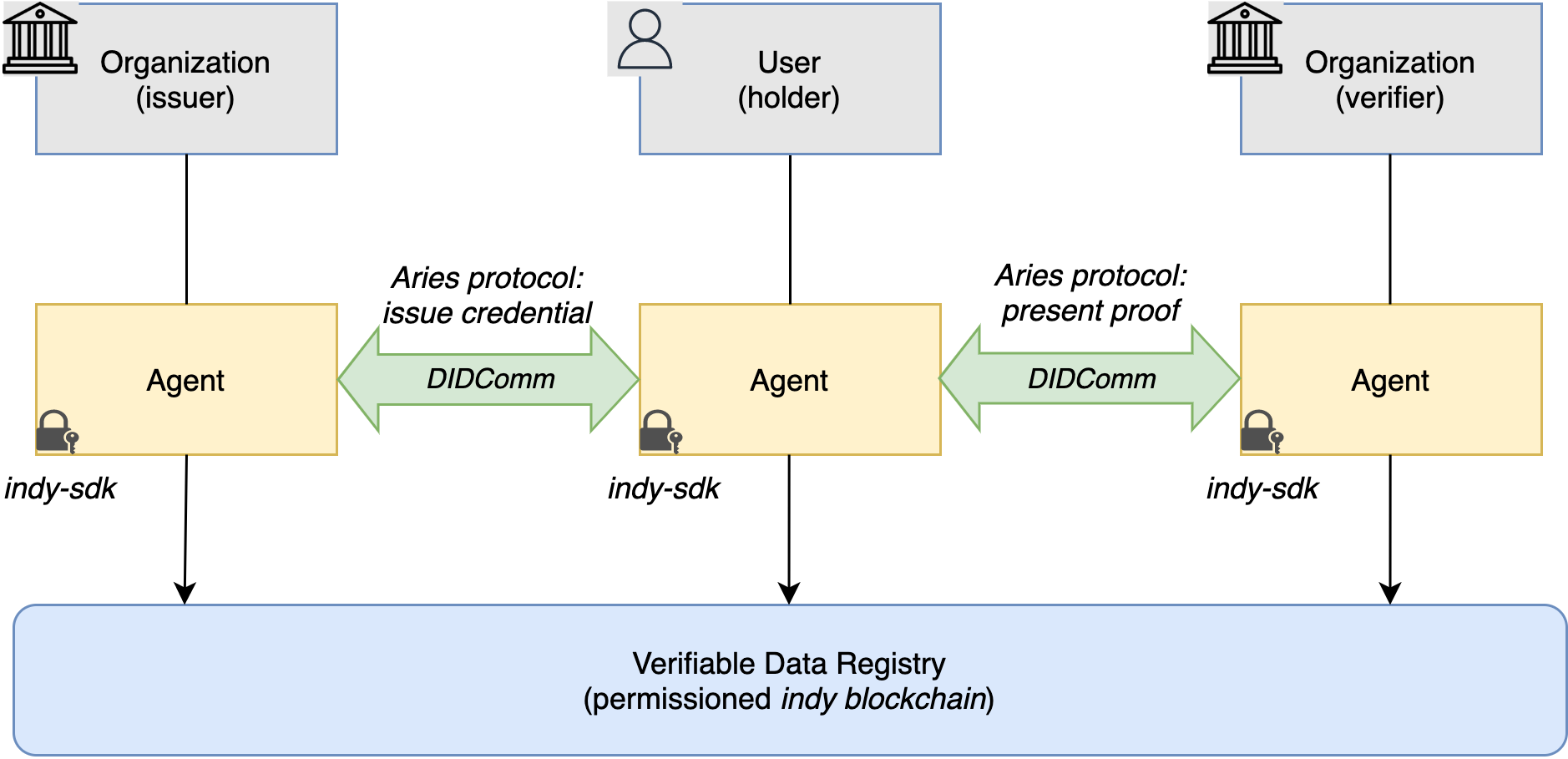 ]
]
???
- Each identity holder owns an agent that can handle the credentials and the needed communication with other agents.
- Depending on the implementation approach, agent functionality can be included in the service as a framework, or agent/agency can run as a separate service.
- Findy Agency is a multitenant service, i.e., a single installation can host multiple identity agents.
- At the time Findy Agency development was started, there were no open-source alternatives to choose from. Nowadays, the situation is better, and there are multiple open source frameworks and agencies that support the Aries protocol.
class: img-fill middle center
Architecture Overview
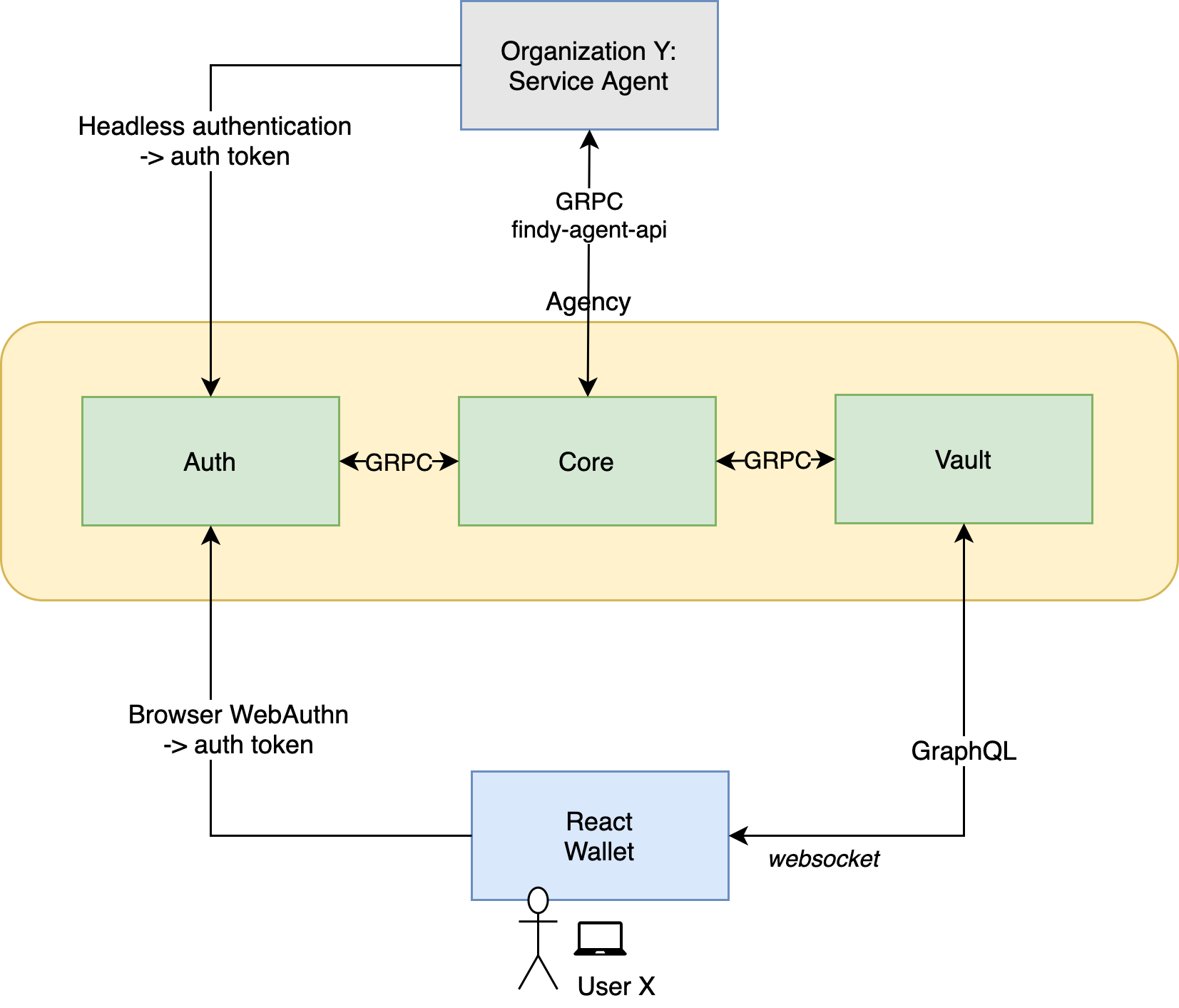
???
- Multitenant agency serving both individuals and organizations
- Exceptional cloud-first approach: credential data is stored and handled only in the server-side
- Secure passwordless authentication via WebAuthn
- GraphQL for browser, gRPC for API clients
- Performant microservice architecture implemented with GoLang and gRPC
- Contanerized microservice images are built with GitHub Actions
- Fully open-source
Why GoLang?
–
class: img-fill middle center
.image-credit[Image by Olivier Poitrey]
???
Initially the technology was implemented by crypto-specialists coming from the academic world, and most of the examples were written in Python. As software professionals we knew that building an agency for this purpose would need more performant tools.
We thought that Go was the best choice of modern languages when the target is to make network intensive microservices.
Our approach using Go is pragmatic. We are not “Go-purists”.
template: network
Go: Highlights 1/2
–
C-bindings
–
Concurrency tools
–
Error handling
–
Library support: gRPC, graphQL, boltDB, WebAuthn, postgres, cobra, viper, openAPI code generation…
template: network
Go: Highlights 2/2
Tooling: testing, golangci-lint, integration to CI
–
Cross-platform builds
–
Docker
–
Refactoring
–
Multiple development flavors
???
- C-bindings to Indy
- Concurrency handling with channels etc.
- Excellent library support: gRPC, GraphQL, BoltDB, WebAuthn, postgres, cobra, viper, openAPI generation
- Error handling
- Native builds for CLI
- Tooling: testing, linting, integration to CI
template: network
Go: Challenges
–
Steep learning curve for developers with JS background and less CLI experience
–
Multiple repositories
–
Moving from GOPATH to modules
–
Short variable names
???
- Moving to go packages from GOPATH in the middle of the project, refactoring difficulties
- Multiple repositories instead of monorepo
- Package version mismatches
- Objection among team members
class: center, img-fill
Demo

???
2 - Test Coverage
GopherCon UK 2023, London
Slides for GopherCon UK 2023, August 2023

Laura presenting at GopherCon UK 2023. Photo by GopherCon UK.
FooConf 2023, Helsinki
Slides for FooConf 2023, November 2023
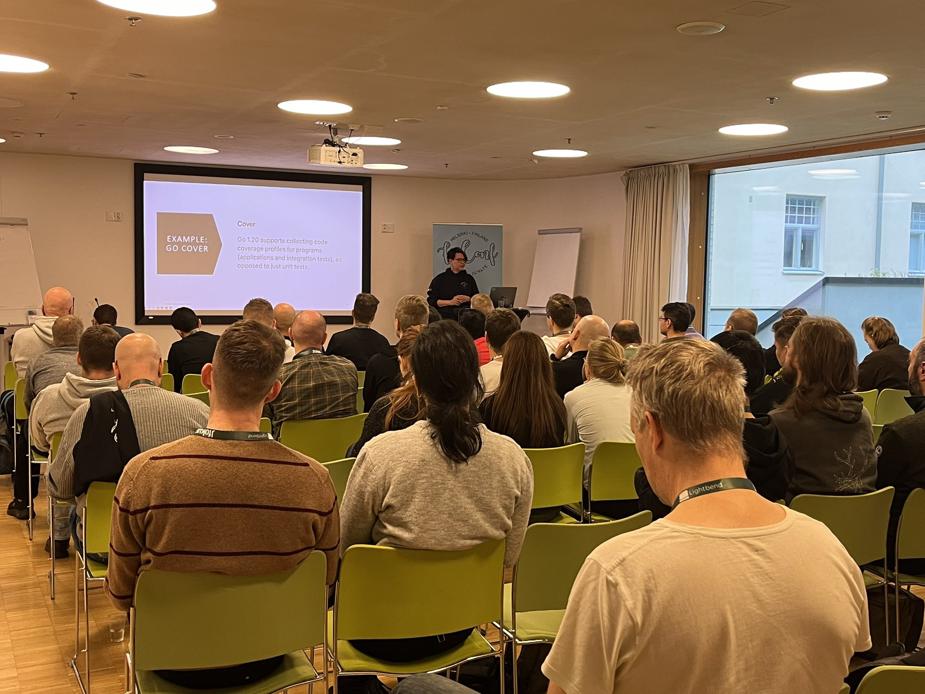
Laura presenting at FooConf 2023. Photo by FooConf.
GoLab 2023, Florence
Slides for GoLab 2023, November 2023
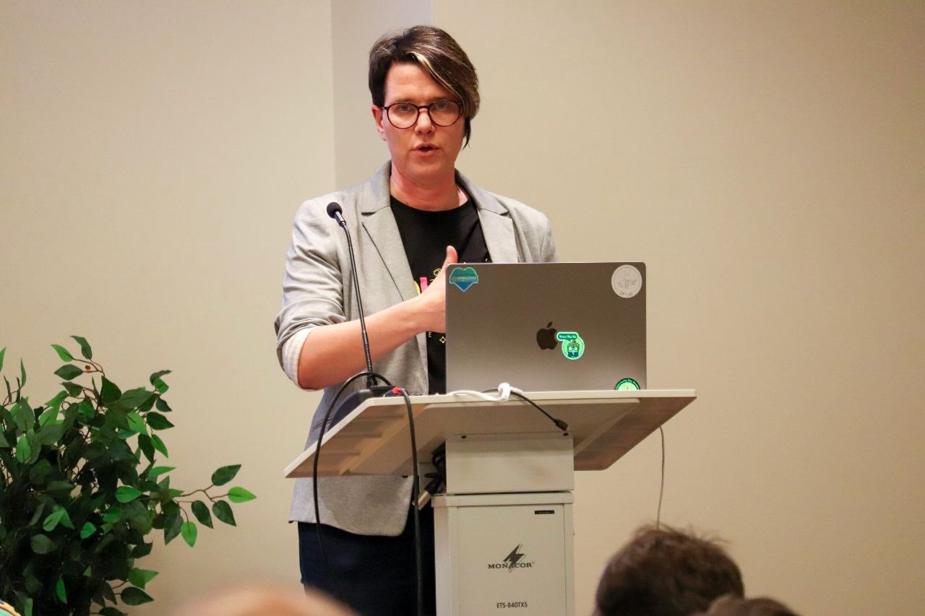
Laura presenting at GoLab 2023. Photo by GoLab.
3 - CDK-based Continous Deployment for OSS
Slides for Tampere AWS User Group Meetup, March 2023
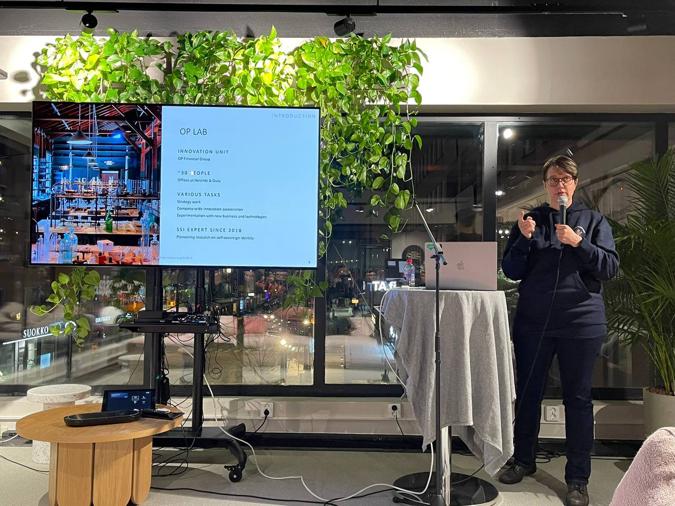
Laura at AWS User Group Meetup (Photo by Harri Lakkala)
4 - Introduction to Self-Sovereign Identity
Slides for Digital Identity Hack 2023 Kick-off
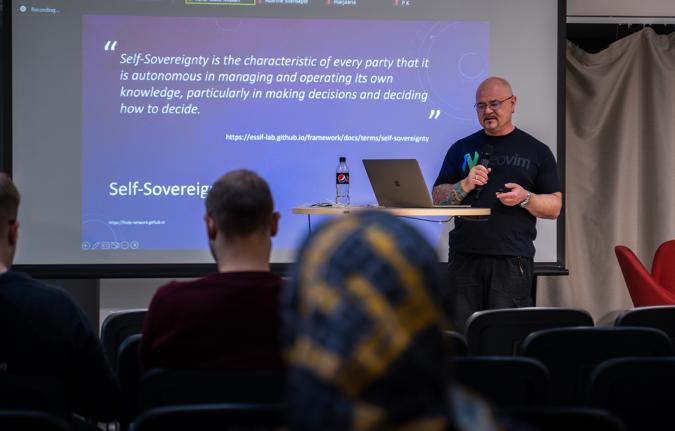
Harri Lainio introducing SSI
5 - Hyperledger Global Forum 2022
Slides for Hyperledger Global Forum 2022 breakout session
